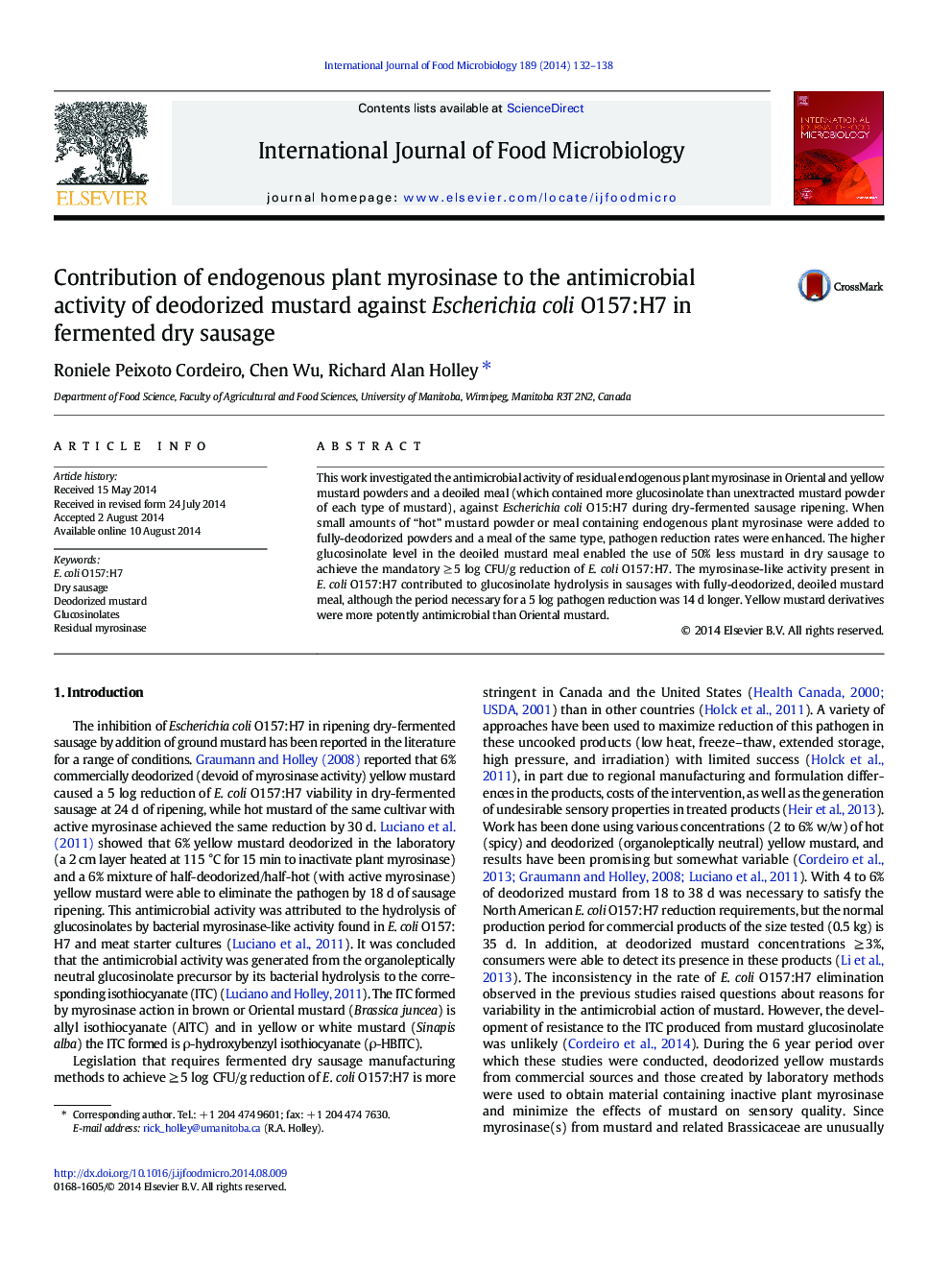| Article ID | Journal | Published Year | Pages | File Type |
|---|---|---|---|---|
| 6290016 | International Journal of Food Microbiology | 2014 | 7 Pages |
Abstract
This work investigated the antimicrobial activity of residual endogenous plant myrosinase in Oriental and yellow mustard powders and a deoiled meal (which contained more glucosinolate than unextracted mustard powder of each type of mustard), against Escherichia coli O15:H7 during dry-fermented sausage ripening. When small amounts of “hot” mustard powder or meal containing endogenous plant myrosinase were added to fully-deodorized powders and a meal of the same type, pathogen reduction rates were enhanced. The higher glucosinolate level in the deoiled mustard meal enabled the use of 50% less mustard in dry sausage to achieve the mandatory â¥Â 5 log CFU/g reduction of E. coli O157:H7. The myrosinase-like activity present in E. coli O157:H7 contributed to glucosinolate hydrolysis in sausages with fully-deodorized, deoiled mustard meal, although the period necessary for a 5 log pathogen reduction was 14 d longer. Yellow mustard derivatives were more potently antimicrobial than Oriental mustard.
Related Topics
Life Sciences
Agricultural and Biological Sciences
Food Science
Authors
Roniele Peixoto Cordeiro, Chen Wu, Richard Alan Holley,
